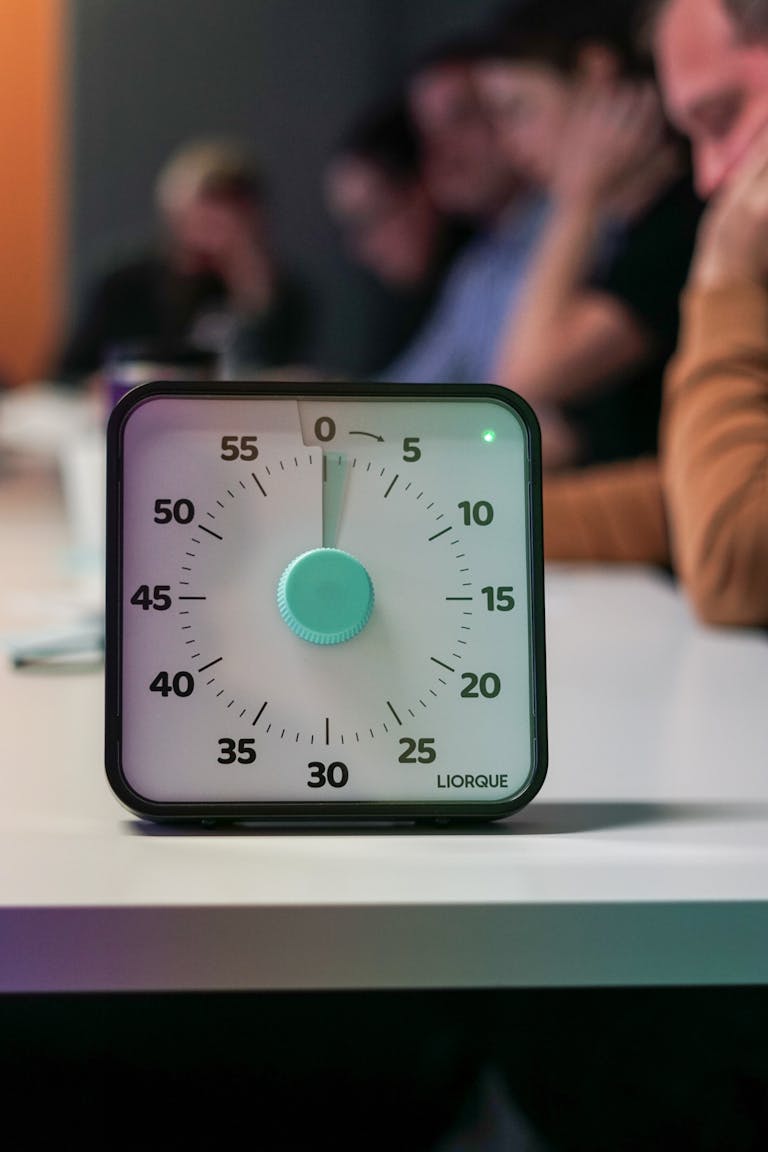Introduction
Ever feel like your attention span has shrunk to that of a goldfish? You’re not alone. In today’s digital age, distractions are everywhere—from buzzing phones to open browser tabs. But focus isn’t a lost art; it’s a skill you can train. And just like muscles, your brain gets better with the right mental workouts.

1. Understand the Distraction Loop
Distractions trigger dopamine—the brain’s reward chemical. Every ping and scroll trains your brain to seek novelty, not focus.
Break the loop: Begin by noticing what interrupts you most often.
2. Time Blocking: Give Your Brain Boundaries
Structure your day into time blocks for deep work, shallow work, and breaks.
Try the Pomodoro Technique (25 minutes focus + 5-minute break) to ease into deep focus.
3. Practice Mindfulness for Mental Clarity
Start with 5 minutes a day of breathing or guided meditation.
Mindfulness improves your brain’s ability to notice when attention drifts—key for building focus muscle.
4. Train with Single-Tasking
Multitasking kills productivity. Train your mind by doing one task at a time and seeing it through.
Start small: Read one article, reply to one email, or finish one paragraph before switching.
5. Declutter Your Digital Environment
Turn off nonessential notifications. Use full-screen mode while working.
Consider focus tools like:
- Forest app (gamifies focus)
- Cold Turkey (blocks distractions)
- Notion or Evernote for structured thinking
6. Fuel Focus with Sleep, Exercise, and Nutrition
Your brain can’t focus when it’s tired, undernourished, or sedentary.
- Sleep 7–8 hours
- Exercise 20 minutes daily
- Eat brain-friendly foods (omega-3s, greens, water)
Q1: How long does it take to improve focus?
You may notice small gains in a week. With consistency, major improvements happen within 30–60 days.
Q2: Is music helpful or harmful for focus?
Instrumental or ambient music can enhance focus. Avoid lyrics or complex rhythms during deep work.
Q3: What if I have ADHD or chronic attention issues?
While these tips help, professional support and tailored strategies may be necessary for sustained improvement.
Q4: Can caffeine improve focus?
In moderation, yes. Just avoid over-reliance as it can cause jitteriness and crash cycles.
Pick one distraction to eliminate today—whether it’s turning off notifications or setting a 25-minute timer. With daily reps, you’ll train your brain to focus deeply and get more done with less stress.

I’m EKBAL HOSSAIN MONDAL, the creator of SmartSolveTips.com — a blog dedicated to helping people improve productivity, avoid digital burnout, and live better online. With years of hands-on experience in self-development and digital wellness, I write practical tips and tools to help you stay focused and thrive in a fast-paced digital world.






